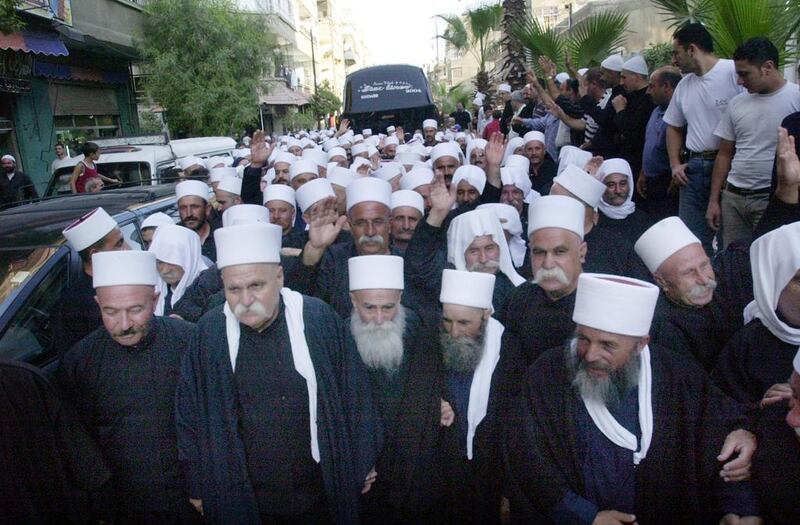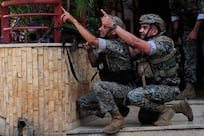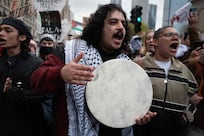Last Thursday, Jabhat Al Nusra, Al Qaeda’s Syrian branch, shot and killed more than 20 members of the minority Druze sect in the town of Qalb Lawzah in the northwestern province of Idlib.
The Druze,who make up 5 per cent of Syria’s population, have so far stayed out of the civil conflict. The incident was the deadliest attack on them since the start of hostilities four years ago. They have been targeted because some extremists consider the Druze to be heretics.
The columnist Ali Hamadeh wrote in the Lebanese daily Annahar that the incident had raised tensions to unprecedented levels within the minority group.
“It is a new reality for the community. For the past four years, they have managed to walk between raindrops, by offering a quasi-total allegiance to the regime and moral and humanitarian support to the revolution, especially in the nearby town of Deraa,” the writer said.
This special arrangement offered some sort of guarantee that helped maintain a measure of stability in the province, and protected the Druze from both the regime’s wrath on the one hand and the rebels’ revenge on the other.
“Up until last week, this compromise was said to have shielded the Druze from the conflict,” he said.
Whereas the Alawites, a minority sect associated with the Assad regime, have suffered more than 60,000 fatalities fighting for the regime, only 1,300 Druze have fallen.
“But with the regime’s withdrawal from three-quarters of Syria and ISIL’s advancement to the heart of the country, the Druze are forced to make difficult choices.
“The regime can no longer receive their support in Sweida province as it would surely lead to confrontation with the revolutionary factions,” Hamadeh said.
Iyad Abu Shaqra wrote in the London-based daily Asharq Al Awsat that the Druze have inhabited Sweida for more than 400 years and have been a part of the region's social fabric.
As with other minorities in Syria, the Assad regime has exhorted the Druze to either pledge allegiance or be left to deal with the radicalisation around them on their own.
“What happens in that particular region of Syria will determine the course of the revolution henceforth. The people of Sweida, or the Druze in general, aren’t waging war on Bashar Al Assad and his supporters, but the best interests of the Druze and surely all of the Syrian population lies in the recalibration of the revolution’s original political objective,” the writer noted.
He said that the world had turned a blind eye to the suffering in Syria even before it fell into extremists’ hands. How, he asked, could we expect a different reaction now that it has become a breeding ground for extremism?
ISIL's offensive has terrified minorities in the region, noted Ghassan Sharbel, the editor of the pan-Arab daily Al Hayat. Bigger minority groups had protected themselves with their weapons and their alliances, but smaller groups, which lacked clout and numbers, had suffered many fatalities.
“Who knows, we may be witnessing the end of some minorities in our region,” the writer said.
“Larger minorities that can do so will migrate to other provinces, while smaller, less capable ones will prepare their passports to leave the country.”
Translated by Racha Makarem
rmakarem@thenational.ae





